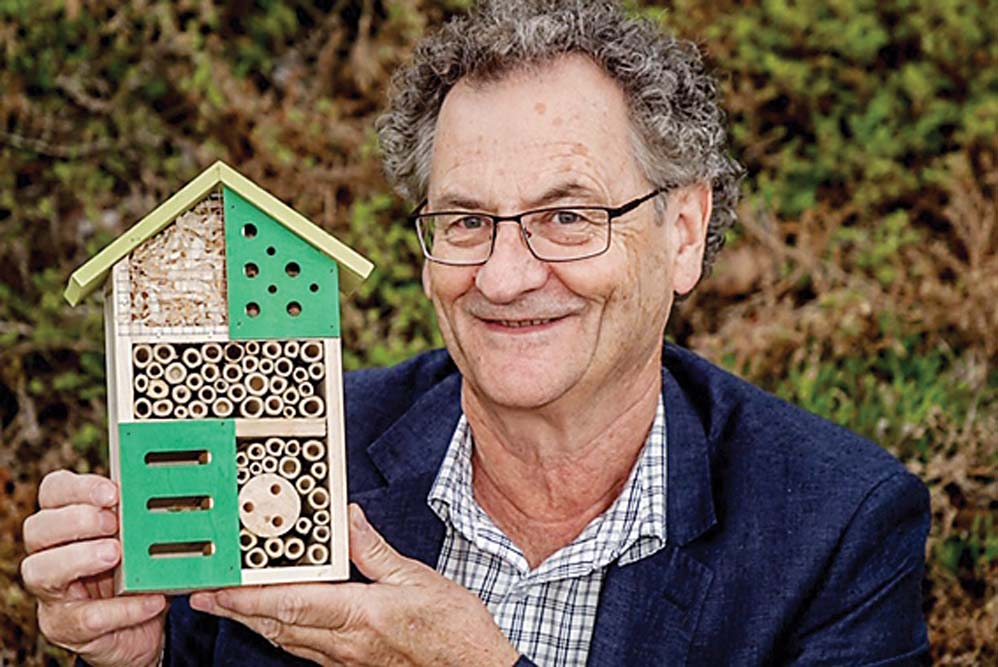
ALTHOUGH there is no shortage of days dedicated to particular issues, some frivolous and many that draw attention to worthy causes, World Bee Day is one that lines up with the latter.
World Bee Day is on 20 May and Mornington Peninsula Shire councillor David Gill does not want it to go unnoticed.
Mornington Peninsula Shire councillor David Gill has become something of an advocate and authority on bees.
He says much of the world’s food production depends on the survival of healthy communities of bees and regularly speaks at schools and to community groups and clubs about the insects that are so integral to the health and survival of the environment, not just in Australia but the world.
His talks cover the settlement of Australia by Europeans with natural history and evolution (bees evolved from wasps about 140 million years ago along with the advent of flowering plants); with bees using flower protein to feed their young instead of the animal protein used by wasps .
The honey bee (one of 22,000 species) arrived here 1822, adding to the 1800 kinds of native bees, of which about 700 live in Victoria.
Cr Gill says about one-third of the world’s crops, including fruit trees, and 90 per cent of Australia’s indigenous plants depend on bees (or other pollinators) for pollination.
“Many native bees are specialised to specific plants or even one type of plant while others are generalist foragers, collecting pollen and nectar from a variety of flowers,” he said.
“Our native bees are mainly solitary and not suitable for commercial production of honey.”
Cr Gill said some native bees were sometimes confused with flies, with the difference being that bees have two sets of wings and flies just one.
“Honey bees in Australia are mainly of the Italian variety. They are threatened overseas by disease, leading to Australia exporting honey bee queens to other countries and are unique in that they can be officially posted through the mail.”
Although the native bees “are pretty much harmless” they are often noisy flyers.
“They build nests from silk, plant material including wood and leaves, even gum nuts and many burrow holes in mud as wasps do,” Gr Gill said.
He said the main threats to bees are habitat clearance, broad spectrum insecticides and disease. “Also, climate change threatens their future. They’re important to our ecosystem and our food supply and they need our protection.”
Cr Gill urged anyone seeing a swarm of bees to call Mornington Peninsula Shire or local bee keepers for help. “The worker honey bees only live for a few weeks and the queen for several years, reproduction is amazing with hives often having bees in the tens of thousands,” he said.
“Try not to call an exterminator.”
To find out more about bees read The Bee Friendly Garden, by Doug Purdie or watch The Pollinators. For bee-related products and seeds for plants to attract bees go to www.beethecure.com.au/product/wildflowers-for-bees-seeds/
First published in the Southern Peninsula News – 12 May 2020